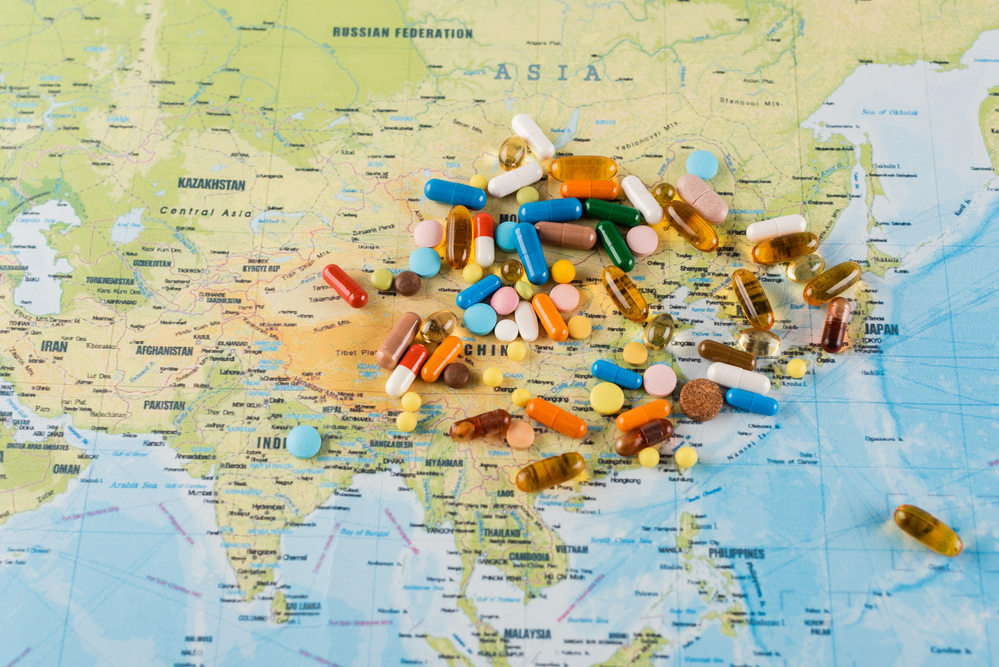In an era where mental health issues like depression are at the forefront of global public health concerns, the reliance on antidepressants as a primary treatment strategy is being critically re-evaluated.
A new study by Roger T. Mulder from the University of Otago, New Zealand, and Anthony F. Jorm from the University of Melbourne, Australia, published in BJPsych Open, reveals that increased antidepressant prescribing is not linked to a lower prevalence of depressive symptoms. Instead, factors like income, education, and life expectancy, as measured by the Human Development Index, show a more significant correlation with reduced depression rates.
“The findings reinforce the view that addressing the high prevalence rates of depression via symptom recognition and treatment with antidepressants is unlikely to be effective. The absolute long-term efficacy of antidepressants in real-world settings is disappointingly modest. This low effectiveness for antidepressants (and depression treatments in general, if we are honest) at the population level suggests that decreasing the treatment gap will have little impact on the community prevalence of depression,” the researchers write.
“However, the fact that income, education, and life expectancy (as measured using the HDI) are significantly associated with the prevalence of sadness, worry, and unhappiness suggests that alternative ways of addressing depression at a community level might be more productive.”
The findings underscore the need to shift the focus from merely expanding access to antidepressants to addressing the underlying social determinants that contribute to mental health issues. The study, therefore, calls for a re-evaluation of current public health strategies in combating depression, advocating for a more holistic approach that encompasses economic and educational improvements.
















“We suggest that regional experiments to test whether types of prevention work are cost-effective is a better use of resources than further randomized controlled trials comparing subtle differences in antidepressant medications.”
Gee, wasn’t all the wasted tax payer dollars spent on continued research into the “invalid” DSM disorders, and their neurotoxic psychiatric “treatments,” supposed to end ten years ago, according to the NIMH?
https://psychrights.org/2013/130429NIMHTransformingDiagnosis.htm
https://quoteinvestigator.com/2017/11/30/salary/
Report comment
Dear Liam,
How people deal with depression will need tweaking in the future. Everything you may want to see changing, to make a better world, will bump up against massive global alterations to civilizations. I prophecy the Hoover Dam explosion to come, and the Totalitarian Regime to come. Just like I predicted the covid pandemic fifteen years before it struck. I prophecy that five meteors will hit the planet, they will be small but will worry people for many decades because they will think each day may see a sixth meteor and so on. Huge tsunamis will hit the globe. Those too will alter civilizations. The rise of child exploitation I have predicted for decades. Now a child is exploited every two minutes in America alone. So is there anything else up ahead in our future? Climate change is worse than we think it is. I predicted Climate change denial long long before it took root. After the denial will come the reckonning that humans have caused Climate change on a vast and deep scale. At present scientists are silenced for openly warning that the models are wrong, and are not seeing the full picture. Some deniers say the Earth has always had natural changes. Whether they think that way or not, a planet scoured by drought and forest fires will be a reality for the Southern hemisphere, and I have long predicted that to the Northern hemisphere will soon come an Ice Age. The oceanic AMOC gyres are already slowing. The Ice Age will not just make countries look pretty and snowy, the frozen land will struggle to grow crops. Food shortages become a matter of urgency. Lawlessness will occur in some places. Meanwhile nuclear posturing could make people uneasy. So much change is coming. But I prophecy a GOOD future on this planet after these jolts are worked through. We have nothing to fear.
I must go now. I leave you, dear animal lover, a jolly video link. Depression may be of these times but joyful resilience will be of the times to come.
https://youtu.be/DUclO26WTrw?si=BvQmQZT3yMnCLpTS
Report comment
Lastly,
The snow is symbolic of healing multiple rots at the centre of humanity. Beautiful calm bandages of snow and snow and snow…..everything will be better….we just need to hold on.
https://youtu.be/iMyo8I8AKmY?si=H-NxtF5NDxs1zj6S
Report comment
First off depression per the DSM 5 is not a disease but disorder. A construct to enable communication , a common lingo to facilitate communication between colleagues. These include Physicians and non medically trained individuals such as PHD Psychologist and clinical social workers( MSW)I interesting both Medical and non- Medically trained people can legally diagnosed these conditions. While in most states only Physcians can prescribe medications. As a physician, I look at the disorder as a diagnosis of exclusion. IE. there is no physical explanation for a given disorder,ie negatives,labs and imaging. Harry Stack Sullivan coined the tern ” problems in living” to accurately describe mental illness as functional issue rather than a actual disease. ” formerly quackery was used to treat real diseases with sham treatments( ie snake oil) now it consists of treating fake illnesses( per DSM5) with real treatments. While both( especially the fake variety) benefit from the real placebo effect, the latter causes real harm through adverse side effects. Whatever small benefit some may experience from these meds can be over ridden by enabling an individual to not engage in activities that may ultimately bring them that elusive peace of mind. At least the snake oil was typically derived from harmless substances unlike pharmaceuticals that over the long hall may change biochemistry for the worse
Report comment
Wasn’t it Thomas Szasz who originated the term “problems in living” to characterize states of mind or behavioral patterns that cannot be legitimately classified as illness in a strictly medical sense?
Report comment
Have you ever had clinical depression? Income and education definitely doesn’t help. I had both. Life expectancy does. Thank you for writing this Liam. It’s mostly related to socialising, human connection. Something hinders it and results in isolation. Can be trauma or the perspective of the world from up bringing. That’s what I think.
Report comment
You hit the proverbial nail point blank on the head. Trauma is a HUGE issue that the medical community does not understand or pay attention to, yet it effects the body and mind in SO many ways. Unfortunately, the people that understand depression and trauma the most are those that have suffered with either or both.
Report comment
Perhaps depression is neither a disease nor a disorder that necessitates “treatment” of some sort (whether talk therapy, a chemical lobotomy, or electroshock), but rather an understandable, natural, totally appropriate response to a highly distressing situation.
Let’s consider two real-life examples: a non-binary person is harassed, insulted, shunned, or physically assaulted by his thuggish peers. If that victim of abuse feels severely depressed, withdraws into a shell, and entertains suicidal thoughts, does it mean he/she/they has somehow contracted a “clinical” illness?
Second, you may recall that during the Yugoslav civil war in the 1990s, numerous Bosnian Muslim women were gang-raped by roving paramilitary bands and suffered great emotional and physical trauma. This gave pharmaceutical companies a lucrative opportunity to ship batches of antidepressants for the treatment of these unfortunates. Were they afflicted with a chemical imbalance or genetic predisposition that made it necessary for them to ingest potent neuotoxins with unpredictable long-term effects?
I contend that in both such cases, a so-called depressive reaction to harrowing circumstances cannot and should not be regarded as a form of pathology at all.
Report comment